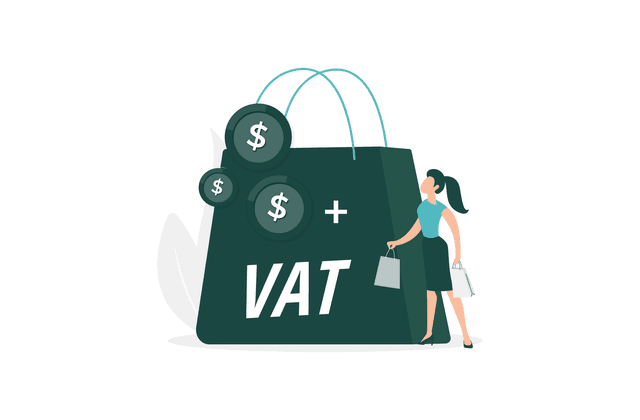
All you need to know about VAT in the UAE
By Kitaab
On 1st January 2018, the UAE government introduced VAT in the UAE, the new indirect Goods and Services tax -VAT. This was a monumental announcement as the showed how the UAE is moving in a direction to financial strengthen the nation and be at par with the global forces.
A zero % VAT rate would be applicable to certain sectors and businesses such as export outside the GCC, investment in precious metals, transportation, educational services, public healthcare, oil and gas and residential properties.
What's Kitaab?
Kitaab provides finance, accounting and tax services for freelancers, start-ups and businesses in the service sector
Learn moreGCC and the VAT regime
Based on the recommendations made by the IMF to diversify income sources beyond oil and gas, The 6 nations members of the GULF Cooperation Council came to a standard VAT agreement that set a 5 % value-added tax to be collected on the sales of goods and services in the region in June 2016. This was to come into effect in 2018.
Benefits of VAT in the UAE
New revenue source- The introduction of VAT in the region would reduce reliance on oil and gas for income sources and diversify revenue streams. This revenue earned through the VAT collected in fragments at various points in the value chain lowers the burden on the consumer as well. This revenue can be used to invest in projects that would aid the growth of the nation.
The Implementation
When a new introduction is made, there is a need to make modifications to the existing systems and this comes with its own costs.
When implementing the new VAT in the UAE, initially due to the quick timeline there were minor hiccups and delays in the linking up of the traditional registration numbers to the VAT registration number that was to be used now for all revenue-related documentation of companies.
Designated Zones Within The VAT Framework
Designated zones are areas treated as belonging outside the state primarily for VAT exemption purposes. The designated areas are decided by the UAE cabinet. Not all free zones would fall into this category and falling into this category alone doesn’t ensure exemption, all criteria have to be met for VAT exemption.
Exemption Criteria Of Designated Zones
Supplies made by a producer to a consumer within the designated zone are exempt from VAT. However, if the location of the supply of service alone is a designated zone, exemptions are not applicable and it is treated as a mainland transaction.
Based on what is “consumed”, the exemptions vary depending on what is consumed hence differing situations would have to be assessed differently.
Transferring Goods and Tax Groups
When goods are moved between the designated zone and the mainland, VAT may be applicable as it falls as an import being made if the commodity is moved from a designated zone to the mainland even if the movement is of the goods of a company from its one branch in a designated zone to a branch in the mainland.
Tourist Refund Scheme
FTA introduced a refund policy on money spent by tourists and visitors on most goods and services that charge VAT under the VAT framework, on 18th November 2018 given certain conditions are met.
In order to be able to avail refund, the purchases should have been made from stores registered with the FTA under this scheme. Within the introduction, over 4000 stores electronically linked themselves under the scheme.
The process of gaining a tax refund is pretty straightforward. There are special devices installed at various points of departure such as airports, seaports, borders etc and by providing purchases invoices along with a passport and bank card, tourists can have the VAT refund in either cash format in dirhams or it can be credited to their credit card provided.
VAT Late Payment Fine
VAT fines start from a minimum of Dhs 500.
Late payment fines start with 2% of unpaid tax is to be paid soon after notice, followed by 4% to be paid on the 7th day of payment deadline which is then followed by 1% of unpaid tax on each day following the 7th day. However, these standard rates may vary on case to case basis and thus it is advisable to look into specific circumstances to evaluate the fine to be paid.
VAT on Interest earned from Bank Deposits
Passive incomes such as interest earned from bank deposit are not compensation for a good or service exchange and hence falls out of the scope of VAT and is generally exempt from VAT. However, since the condition remains to be “passive earning”, the interest earned must be evaluated to ensure that it indeed isn’t paid for creating a financial service supply.